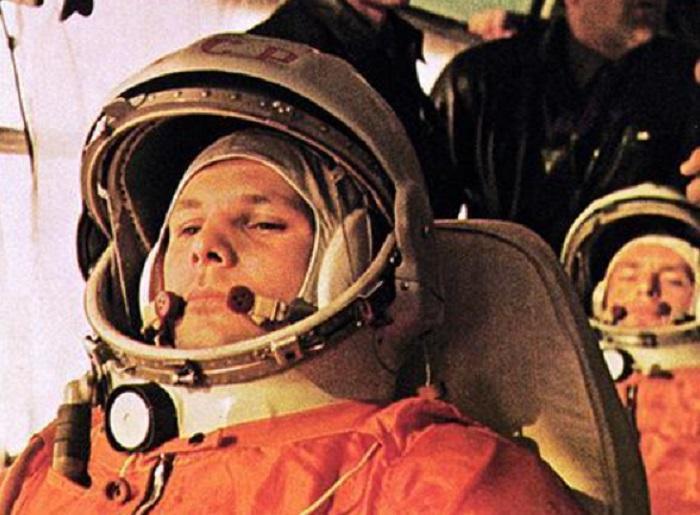
Cosmonaut Yuri Gagarin on the bus on the way to the launch of Vostok 1 on April 12, 1961. (REUTERS/NASA)
Today, April 12, marks exactly 60 years since the first manned flight into space, a significant event in the history of our planet. Exactly 60 years ago, the famous Gagarin’s “Poehali” (“Let’s go!”) flew around the world, and radio stations from different parts of the world interrupted their programs to broadcast this sensational news. It is difficult to overestimate the feat of Yuri Gagarin, his name will forever remain inscribed in golden letters in the history of mankind.
Over the past years, our country has covered a long way in space exploration. In the same 1961, another Soviet cosmonaut, German Titov, spent a whole day in space and proved that a person can live and work in zero gravity conditions. By the way, he was the first of the cosmonauts to take photographs of the Earth. Then there was the flight of the Vostok-5 spaceship with the cosmonaut Valery Bykovsky on board, which lasted for about five days. Our compatriot Valentina Tereshkova was the first woman to be in space, and Alexei Leonov was the first cosmonaut to conduct a spacewalk.
new stage in space exploration was the launch of manned space stations into orbit, which made it possible to ensure long-term human activity in space. An extensive scientific research program was carried out by the first international multi-module orbital station Mir. The experience accumulated by the Russian cosmonautics during the operation of its own manned orbital stations has largely become a practical basis for the creation of the International Space Station, which has been operating for more than 20 years in a continuous manned mode. The ISS project combines resources, scientific and technical achievements and experience of both Western countries and Russia and contributes to the efficient use of space in the interests of the world community. At present, the crew of the 64th long-term expedition is carrying out the assigned tasks on board.
We see that Turkey is interested in space exploration. We congratulate our neighbor on the launch of its own space program. We believe that Turkey will contribute to the world’s space research efforts. In this regard, I would like to emphasize once again that Russia is open for cooperation with other states, including Turkey, in a wide range of areas of space activities.
Taking this opportunity, I would like to note one more important aspect. Russia has consistently advocated the non-discriminatory peaceful use and exploration of outer space and is committed to its obligations in this area. We see attempts to launch an arms race in outer space as extremely dangerous. Our country is putting forward an initiative to conclude a legally binding agreement with the participation of all leading space powers, which would ban the deployment of space-based weapon systems. There is still a chance to work out generally acceptable measures that can prevent a military confrontation in outer space and lay the foundation for an international security architecture.
Otherwise, I am scared to imagine possible implications of outer space arms race for our planet.
In this regard, I would like to recall the words which were uttered by Yuri Gagarin 60 years ago and are most relevant today: “Orbiting Earth in the spaceship, I saw how beautiful our planet is. People, let us preserve and increase this beauty, not destroy it!”
*Alexei Yerkhov is the ambassador of the Russian Federation to Turkey.